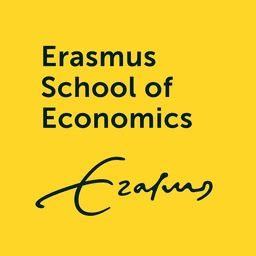
Within this theme, we look at the legal and organisational aspects of digitalisation in the area of work processes and products. Digitalisation is understood broadly, which means a wide variety of issues related to digital transformations are included in our research and teaching endeavors. Digitalisation can relate to content matter, such as the development of digital products. It can also relate to processes, such as selling products and providing services via online platforms or using digital tools when governing a firm.
Within this theme, we look at the legal and organisational aspects of digitalisation in the area of work processes and products. Digitalisation is understood broadly, which means a wide variety of issues related to digital transformations are included in our research and teaching endeavors. Digitalisation can relate to content matter, such as the development of digital products. It can also relate to processes, such as selling products and providing services via online platforms or using digital tools when governing a firm.
Research on the impact and risks of digitalisation
Application of digital tools can have both advantages and risks. For example, digitalisation may contribute to more efficiency, higher turnover, and the attainment of sustainability goals. But digitalisation may also have unwanted (side-)effects, for example rapid 24/7 small deliveries of groceries facilitated via online platforms is convenient, but not very sustainable and has led to traffic safety issues in cities. Another issue is the accountability (and related liability) for systemic risks.
Questions that can come up are: what is the impact of digitalisation on organisations and people? How are work-processes affected? What measures should be taken to optimize the results that can be achieved by digitalisation? How can the risks or disadvantages be avoided or minimized? Is the legal framework adequate to facilitate digitalisation and at the same time mitigate the risks? Should the legal framework be adapted and if so, how?
Accountability, manageability, and optimisation are key topics, which can be related to:
- creation and governance of legal entities;
- the nature of work processes and their results;
- the mechanisms for trade and service delivery, including the rise of the platform economy;
- payment for products and services.
Leads
 Philipp Cornelius
Philipp CorneliusRotterdam School of Management, Erasmus University
Email address Martien Schaub
Martien SchaubErasmus School of Law
Email address
Team members
 Vladimir Belev
Vladimir BelevErasmus School of Law
Email address Kathrin Borner
Kathrin BornerRotterdam School of Management, Erasmus University
Email address Sean Brüggemann
Sean BrüggemannErasmus School of Economics
Email address Greetje Corporaal
Greetje CorporaalRotterdam School of Management, Erasmus University
Email address Izabela Derda
Izabela DerdaErasmus School of History, Culture and Communication
Email address Julie Hoppenbrouwers
Julie HoppenbrouwersErasmus School of Law
Email address Titiaan Keijzer
Titiaan KeijzerErasmus School of Law
Email address Julia Krämer
Julia KrämerErasmus School of Law
Email address Shu Li
Shu LiErasmus School of Law
Email address Alexandre Madelaine
Alexandre MadelaineRotterdam School of Management, Erasmus University
Email address Mthuthukisi Malahleka
Mthuthukisi MalahlekaErasmus School of Law
Email address Madeleine Merkx
Madeleine MerkxErasmus School of Law
Email address Clemens Mueller
Clemens MuellerErasmus School of Economics
Email address Eugene Pyun
Eugene PyunRotterdam School of Management, Erasmus University
Email address Chandrika Rathee
Chandrika RatheeRotterdam School of Management, Erasmus University
Email address Enrique Santamaria Echeverria
Enrique Santamaria EcheverriaErasmus School of Law
Email address Sam van der Vlugt
Sam van der VlugtErasmus School of Law
Email address Josje de Vogel
Josje de VogelErasmus School of Law
Email address Hechen Wang
Hechen WangErasmus School of Law
Email address Yeqing Zhou
Yeqing ZhouRotterdam School of Management, Erasmus University
Email address Meriëlle de Zwart
Meriëlle de ZwartErasmus School of Law
Email address Cees Zweistra
Cees ZweistraErasmus School of Law
Email address
